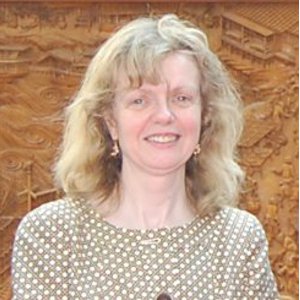 |
| Photo by Maxime Larivé |
Audrey Dombro, an agricultural and consumer economics student and 2019-20 FLAS fellow, reflects upon her experience studying in Jordan.
The European Union Center at the University of Illinois offers the only Master of Arts in European Union Studies (MAEUS) program in the Western Hemisphere. Learn more here.
On Earth Day 2022, the EU Center organized a symposium on the future of technology, energy, and security in Europe, featuring prominent scholars and policy makers from France, Germany, and the U.S.
Watch the collection of online roundtable discussions on different EU issues sponsored by the University of Pittsburgh.
Bruce Murray, Resident Director of the Illinois Program in Vienna, presents a series of student-written policy statements for accelerating climate change mitigation.
Missed an EUC-hosted lecture? Our blog's video tag has archived previous EUC-sponsored lectures.
 |
| Photo by Maxime Larivé |
EUC Lecture Series: Syrian Refugees in Turkey
“The Refugee Crisis and the New Right on the European Periphery” Keynote Lecture: Jószef Böröcz, “Materialist Background to the ‘Migration Crisis in Europe’”
Keynote Lecture: The Honorable Mary Robinson, “Climate Justice after Paris: opportunities, challenges, and priorities”
 |
| Chantal Tetreault, MSU Department of Anthropology |
EUC Lecture Series on Race, Globalization and Education “Transcultural teens: performing youth identities in French cités”
 |
| Mike Nelson and EducationUSA alum Kostyantyn |
 |
| Mike Nelson and students |
The goal with INSPIRE is to establish a transnational partnership alliance between the University of Illinois at Urbana-Champaign (Illinois) and three leading research universities in Stockholm, Sweden. This partnership was initiated with KTH Royal Institute of Technology (KTH) and quickly expanded to include Stockholm University (SU). We are now actively exploring potential avenues of collaboration with Karolinska Institutet (KI). Together, these top Swedish universities include faculties of engineering, humanities, law, medicine, natural sciences, and social sciences. This partnership alliance is a collaborative venture of well-matched, peer institutions and is expected to be fully reciprocal.
 |
| Mike Nelson and Iryna |
 |
| Mike Nelson and EducationUSA alum Nick |
MAEUS Alum Michael Nelson's Ukrainian Research
 |
| Interim Chancellor Barbara Wilson (left) and EUC Director Anna Stenport welcomed His Excellency Henne Schuwer for the 14th Annual EU Day at Illinois. |
EU Day 2016-Resolving Refugee Crisis Highlights Dutch EU Presidency Goals
 |
| Professor Michelle Egan |
This ambitious volume provides a trenchant and timely analysis of the creation of a single market in both the EU and the US. Comparing the experience of the US during the nineteenth century and the single market of the EU in the twentieth century, Single Markets demonstrates how the political economy of single market formation has followed remarkably similar trajectories. Both cases show evidence of interplay between different levels of government in determining distributive outcomes; evolution of a legal framework for the market; and development of new regulatory strategies to deal with changing economic realities. The book illustrates the process of market consolidation through a detailed comparison of the so-called four freedoms: the removal of border controls; and the largely unrestricted transfer of goods, services, and capital across different jurisdictions. In both cases, establishing one market, one currency, and a more unified banking and financial system transformed largely autonomous or sovereign constituent units into a more unified economic entity. Single Markets also sheds light on critically important questions for both comparativists and international relations scholars regarding the nature of territorial governance and the construction of state interests. The book's interdisciplinary approach to focusing on crucial political and economic developments on both sides of the Atlantic will be of interest to scholars in political science, public policy, law, and history.
| Single Markets |
LARRY NEAL PRIZE FOR EXCELLENCE IN EU SCHOLARSHIP AWARDED TO PROFESSOR MICHELLE EGAN
 |
| Photo by Marta Schneider |
| Photo by Marta Schneider |
EU Day 2016-Student Meeting
The EUC Blog is an initiative of the European Union Center (EUC) at the University of Illinois, USA. It is intended as a forum for the sharing of ideas about issues related to the EU. Blog participants include the faculty, students, and wider community of affiliates of the EUC, as well as members of the general public with interests in the European Union.
On this blog, you will find:
We hope you enjoy your visit to the EUC Blog, and invite your active participation. We also welcome your feedback—please send any comments to the European Union Center at eucenter@illinois.edu.